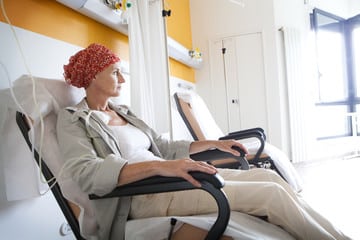
HOW DOES CANCER IMPACT ITALY?
The most commonly occurring cancers in Italy are those located in the breast, prostate, colorectum (large bowel) and lung. In 2018 there were 409,808 new cancer cases and 1,180,472 5-year cancer survivors.
Survival rates vary by type of cancer but have improved since the 1990s for the most common cancers. Survival rates are particularly high for patients with breast and prostate cancer. Unfortunately, the low survival rate for patients with lung cancer is shared by most of the 67 countries and 279 registries covered in a 2015 study.
DID YOU KNOW?
In Italy, an estimated 31% of men and 24.2% of women will develop cancer before the age of 75.The number of survivors has been increasing steadily, including for patients with breast and prostate cancer, the two most common cancers.
General practitioners are self-employed and are paid a combination of capitation (a flat fee for each patient covered) and fee-for-service. They are often organized in small, single-practitioner practices that work in isolation. General practitioners are being encouraged to form partnerships with others and consolidate by creating networks that use shared clinical guidelines and electronic health records.
In some regions, general practitioners are also being urged to work in multidisciplinary teams that include specialists, nurses and social workers. This is being done in an effort to integrate medical and social care. This provides a tremendous opportunity for allied healthcare professionals to fill a need that general practitioners don’t have the time and/or training to fulfill. A Cancer Exercise Specialist can assist the general practitioner by performing pre-surgical assessments. They can also provide guidance on prehab exercises that will help to make the patients stronger and better able to handle the debilitating side-effects of surgery and treatment.
AN INVALUABLE RESOURCE
The Cancer Exercise Specialist can also be an invaluable resource during the treatment process. A customized exercise program can help to improve treatment tolerance! Exercise can decrease fatigue, improve sleep, decrease depression, minimize pain, and improve overall quality of life. When the patient has completed treatment, the Cancer Exercise Specialist can help the patient to return to their pre-cancer levels of strength and fitness; sometimes even better! The proper exercises can help to correct muscle imbalances that may arise from scar tissue and adhesions. This may minimize pain, arthritis, and future joint degeneration. They can also help to improve range of motion, which can also be severely impacted by scar tissue and adhesions. The coup de grâce is that exercise can help to prevent many of the comorbidities that are prevalent amongst cancer patients and survivors. These include: diabetes, osteoporosis, heart disease, lymphedema, and future cancers.
The Cancer Exercise Training (CETI) Institute has been the leader in evidence-based exercise oncology training since 1995. They have trained thousands of Cancer Exercise Specialists in 40 countries. CETI is expanding throughout Europe and will be offering the Cancer Exercise Specialist Advanced Qualification in Italian in 2021. If you are interested in learning more about CETI Italy, or bringing CETI to your region of the world, please email Andrea Leonard – CETI President & Founder at Andrea@thecancerspecialist.com.

